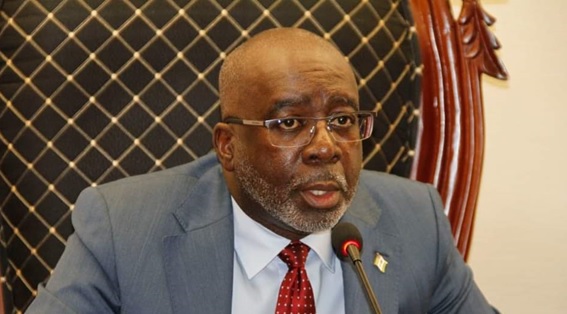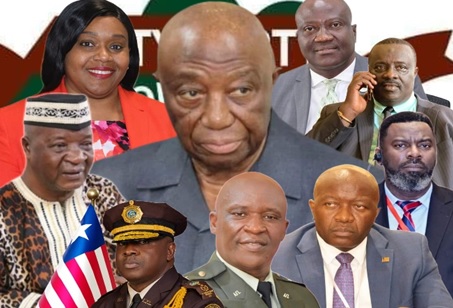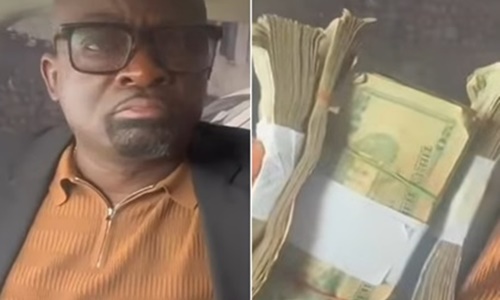MONROVIA – The internal dynamics of Liberia’s House of Representatives are under intense scrutiny as a power struggle escalates between Speaker J. Fonati Koffa and Deputy Speaker Thomas Fallah. Both men, members of the opposition Coalition for Democratic Change (CDC), are clashing over control of the influential Ways, Means & Finance Committee, currently chaired by Rep. Dixon Seeboe, a staunch ally of Speaker Koffa. The feud has glowed concerns within the CDC and reignited debates about transparency and accountability in Liberia’s legislature.
At the heart of the discord is Deputy Speaker Fallah’s reported bid to exert influence over the leadership of the finance committee. His efforts to replace Seeboe, who has held the post since Speaker Koffa’s rise to power, have triggered a wave of dissent. This internal conflict threatens to destabilize the former ruling party’s already fragile unity. Former President George Weah, the CDC’s political leader, has spoken out against the removal of Speaker Koffa, emphasizing that such internal wrangling does not benefit the party. Weah urged the opposition bloc to set aside their differences in favor of party unity, reflecting concerns that the ongoing feud could undermine the CDC’s future prospects.
However, the controversy is not just about power—it is also rooted in Koffa’s drive for transparency, particularly his decision to audit the lower house. Following his election, Speaker Koffa made a bold move by inviting the General Auditing Commission (GAC) to conduct an audit of the House of Representatives, the first such effort since the country’s civil war ended. For over 30 years, the House had not undergone any formal audit, a fact Koffa highlighted as deeply troubling. His pledge to run a more transparent and accountable legislature marked a significant shift from the “business as usual” approach that had long defined the House.
Koffa’s push for an audit has been met with both praise and resistance. On one hand, civil society organizations, including NAYMOTE, have backed the Speaker’s efforts, viewing it as a critical step toward rebuilding public trust. Eddie D. Jarwolo, Executive Director of NAYMOTE, issued a public statement on social media, urging the House leadership, including Deputy Speaker Fallah, to support the audit. Jarwolo stressed that any attempts to undermine the process would cast doubt on the integrity of the legislature and its leadership.
On the other hand, Koffa’s insistence on accountability has unsettled some within the House, particularly those who may see the audit as a threat to the established order. The reluctance to embrace the audit reflects deeper divisions within the CDC, as members are torn between upholding internal loyalties and addressing growing demands for transparency from the public and civil society.
Auditor General P. Garswa Jackson, Sr. has also proposed a comprehensive system review audit of the Legislature, which would take place over the next two years. This step, aimed at ensuring a thorough examination of legislative operations, represents a broader effort to strengthen governance and accountability within the country’s institutions. Yet, the proposed audit may face further resistance if internal divisions within the CDC continue to deepen.
The struggle between Speaker Koffa and Deputy Speaker Fallah emphasizes a broader tension within Liberia’s political landscape: the balancing act between political power and the push for transparency. Koffa’s efforts to lead a more accountable House represent a significant departure from the status quo, but his leadership is now being tested by forces both inside and outside the CDC. As the year draws to a close, the question remains: will the audit move forward, or will the internal discord within the legislature stall progress once again?
This battle over transparency and control will likely define the future of the CDC as well as the House of Representatives. If Koffa succeeds in carrying out the audit, it could set a precedent for accountability in Liberia’s governance. However, if the internal power struggle continues to intensify, it may jeopardize the party’s stability and its ability to function as a cohesive opposition force. As the situation develops, all eyes are on the Speaker, his opponents, and the path they will ultimately choose.







